Mujaddid IOS Centre for Arts & Literature holds discussion on the fiction of Ishrat Zaheer
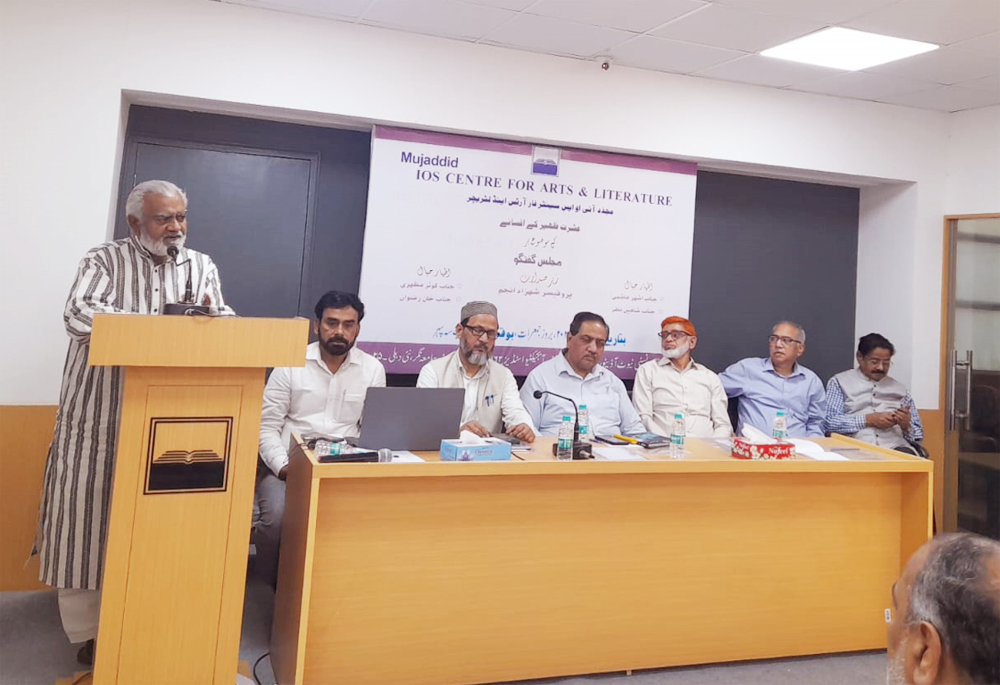
Mujaddid IOS Centre for Arts & Literature holds discussion on the fiction of Ishrat Zaheer
New Delhi: A discussion on the fictions of Ishrat Zaheer was organised by the Mujaddid IOS Centre for Arts & Literature at the Institute’s auditorium on March 16, 2023.
The function began with the recitation of a Quranic verse by Syed Athar Husain Nadwi with its translation in Urdu.
Introducing the fiction-writer, Ishrat Zaheer, the convener of the Centre, Anjum Naim, said that Zaheer had so far published four collections of stories in Urdu. He hailed from Gaya in Bihar and after retirement from service in Jharkhand government, Delhi became his permanent address. Zaheer freely used his experiences as the subject-matter of the stories he wrote. He wrote positive literature which was constructive as well as reflective of our cultural values.
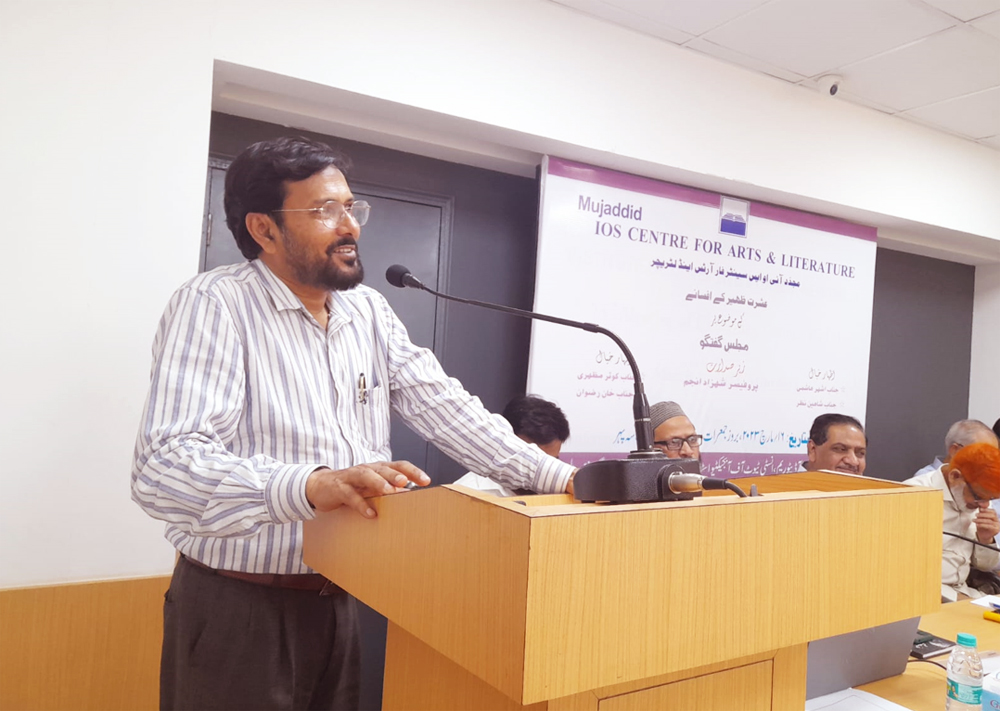
Initiating the discussion, ex-editor of the Urdu daily, Inquilab, Ahmad Javed described himself as a student and reader of literature. He did read the fiction written by Ishrat Zaheer and found that he excelled in the writing of standard fiction. He called himself one of the admirers of Zaheer’s fictions.
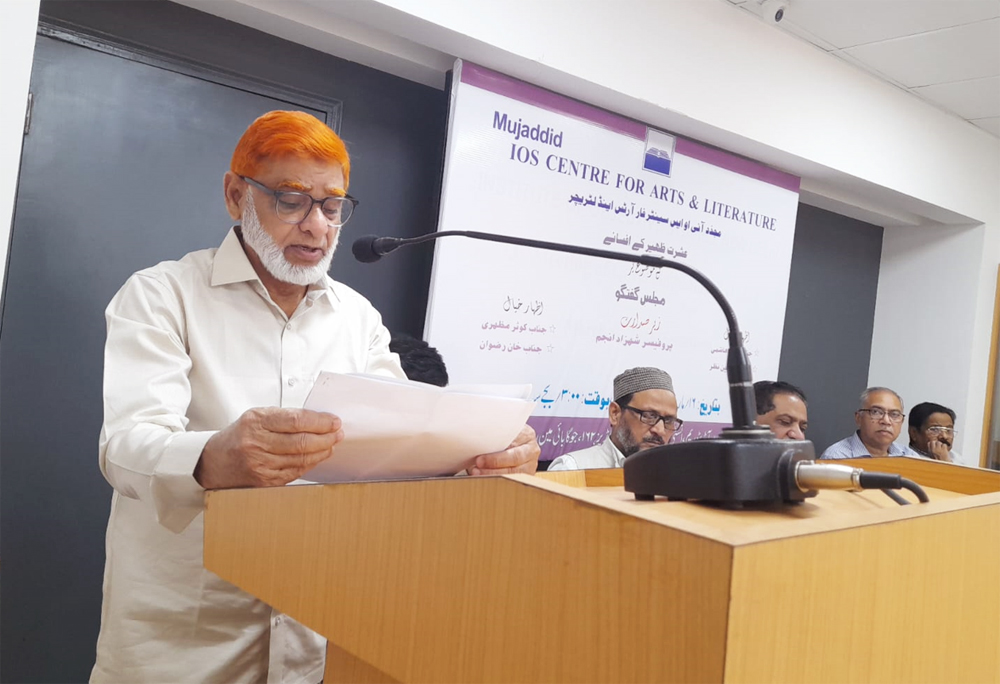
On this occasion, Ishrat Zaheer read out his story ‘Kapil Vastu’. This story was based on his experience during his tenure as a government servant. Since his birth place was Gaya, also a prominent seat of Buddhism, he understood the chequered life of Gautam Buddha who attained enlightenment later. He used several instances of his life to draw parallels in the story. Those who were present in the discussion listened to the story with rapt attention.
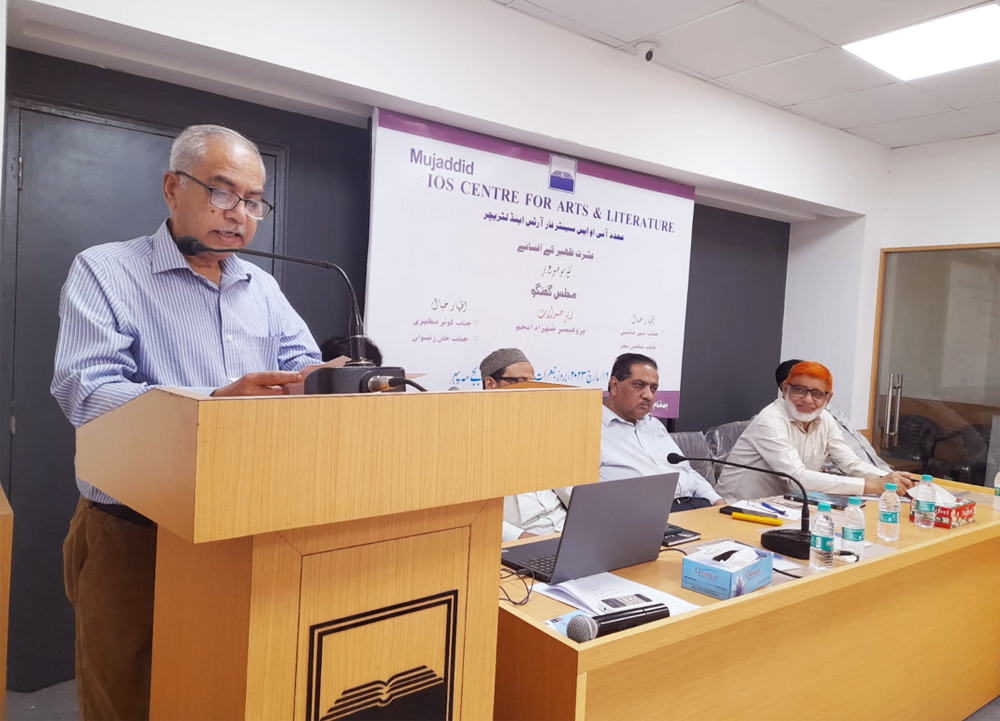
Urdu journalist and writer, Shaheen Nazar, observed that most of Ishrat Zaheer’s time was spent in Gaya which provided him an ideal ground for selecting his characters and events. In his stories, the plot was reflective of the soil where he was born. He recounted the ups and downs of his life and the experience with his colleagues during the government job. This was his way to present the real picture of society before the readers. He made mention of several Urdu magazines that were being brought out from Gaya. Ishrat Zaheer had been regularly writing in these magazines. He complimented the Mujaddid Centre for hosting literary and cultural meets. Ishrat Zaheer’s fiction was set purely in India milieu, he remarked.
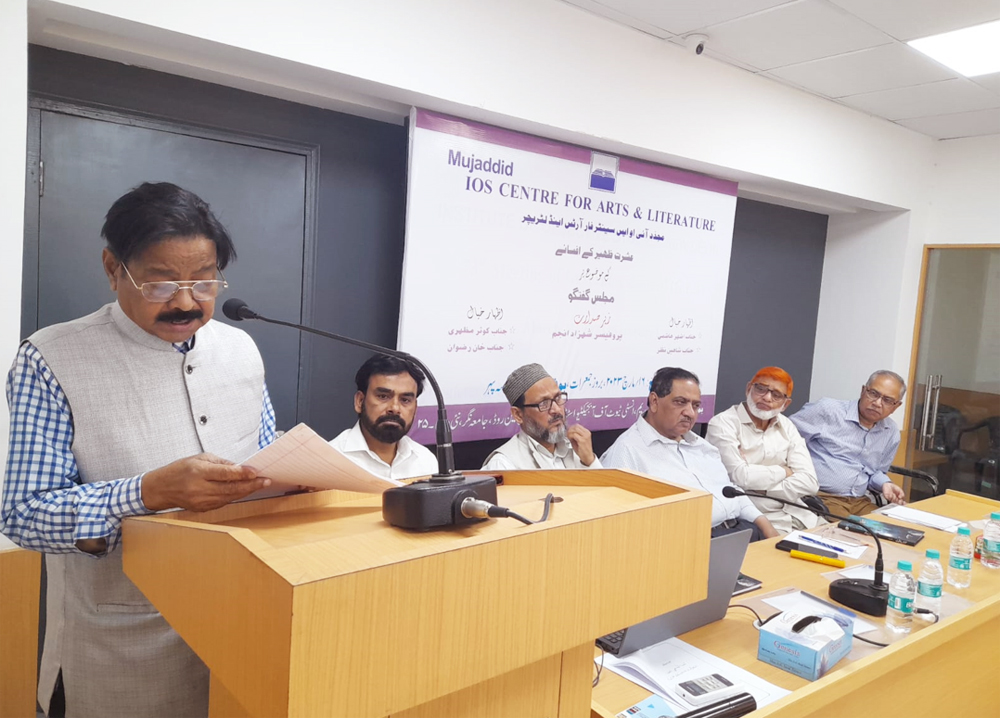
Well-known journalist and Urdu writer, Ashhar Hashmi, noted that Ishrat Zaheer presented one of the finest stories he wrote. His story was characterized by the reality in social life which was full of contradictions. His fiction was more popular in Pakistan than in India. He was recognised as a fiction writer par excellence. His stories were replete with civility, discipline and politeness. He had perfected the art of expressing symbolically. His characters came from the prevalent social atmosphere. He abruptly detached himself from the story while narrating it. Every story he wrote, whispered. Ashhar concluded that Ishrat Zaheer did justice to his stories.
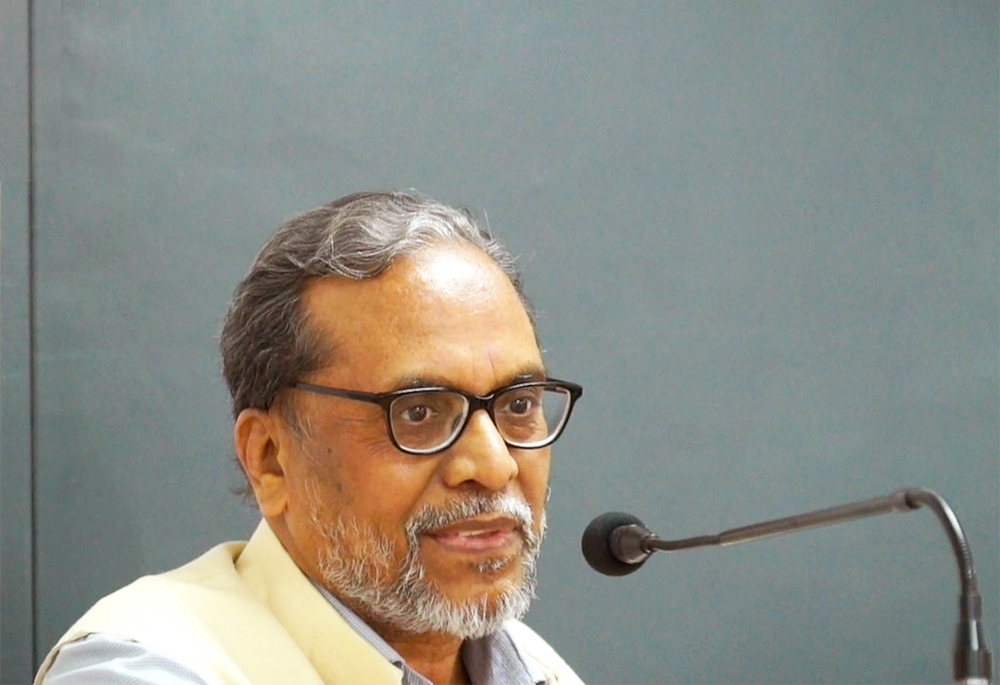
Voice of America representative in India and writer, Suhail Anjum, insisted that once Ishrat Zaheer started narrative, he took it forward and then gave it a different turn. It was very difficult to attain Nirvana (cessation). Referring to Buddhist holy place, like Kushinagar and Kapil Vastu, he said that it was not easy for a person to become Gautam Buddha. He termed the story ‘Kapil Vastu’ as the best example of the fiction of symbolism.
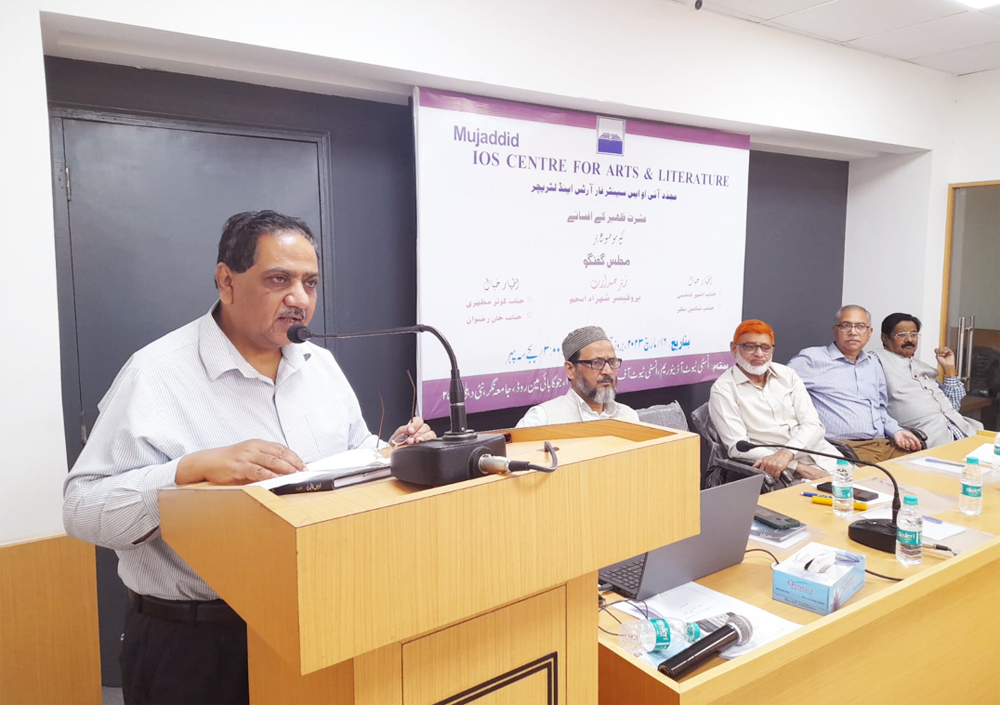
Presiding over the function, noted critic and professor of Urdu in JMI, Prof. Shahzad Anjum, said that he lived in same area in Gaya where Ishrat Zaheer used to reside. ‘Ubharti-Doobti Lahrein’ was his first story. His another fiction ‘Khwabon ka Qaidi’ (Prisoner of dreams) was descriptive of the vicissitudes of his life. The characters he chose were articulated in his novels. ‘Kapil Vastu’ had been acclaimed as a fine example of imagery by many readers and critics. He said that Ishrat Zaheer’s feeling of strain was his personal experience and all the stories and fiction he penned were allegorical. His stories were moving around a particular ambience. He had been writing since 45 years and so far four collections of stories had come out. He was credited to have written 70-80 stories. His stories were being regularly published by the magazines, like Auraaq and Kitab. Though his fiction was based on his personal experiences and observations, he had a strong grip over the art of fiction writing. He made full use of metaphors and symbols. Ishrat Zaheer’s stories picturised the unpalatable realities of today’s life, he added.
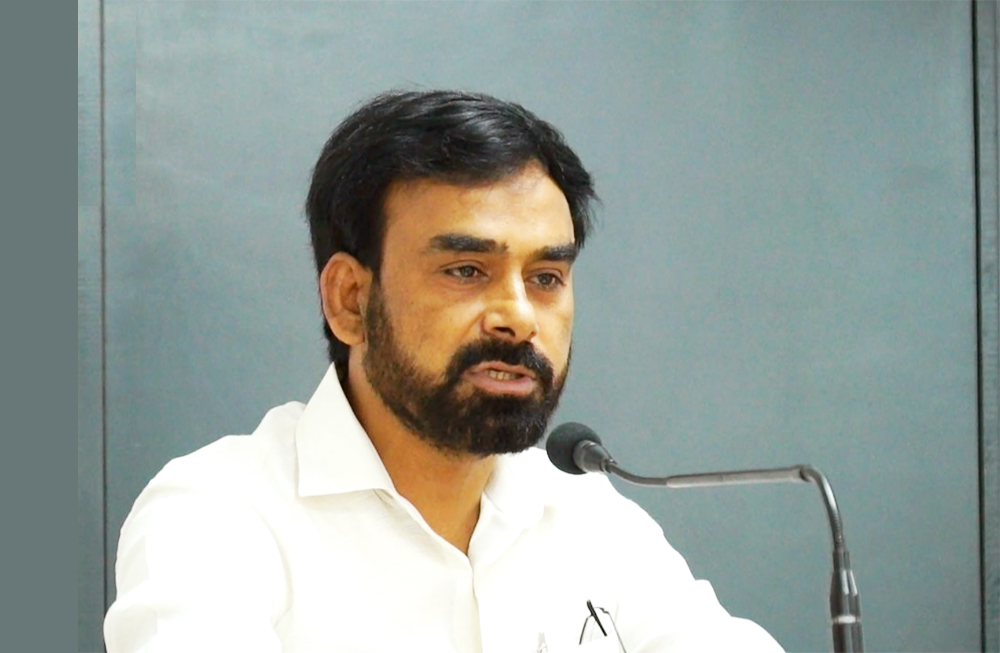
While the proceedings of the discussion were conducted Dr. Khan Rizwan, a vote of thanks was extended by Anjum Naim. Those who attended the function included Prof. Haseena Hashia, Assistant Secretary General, IOS, Dr. Abrar Rahmani, Khursheed Akram, Dr. Khalid Mubashshir, Dr. Ahsanul Islam, Safi Akhtar and a good number of Urdu lovers.
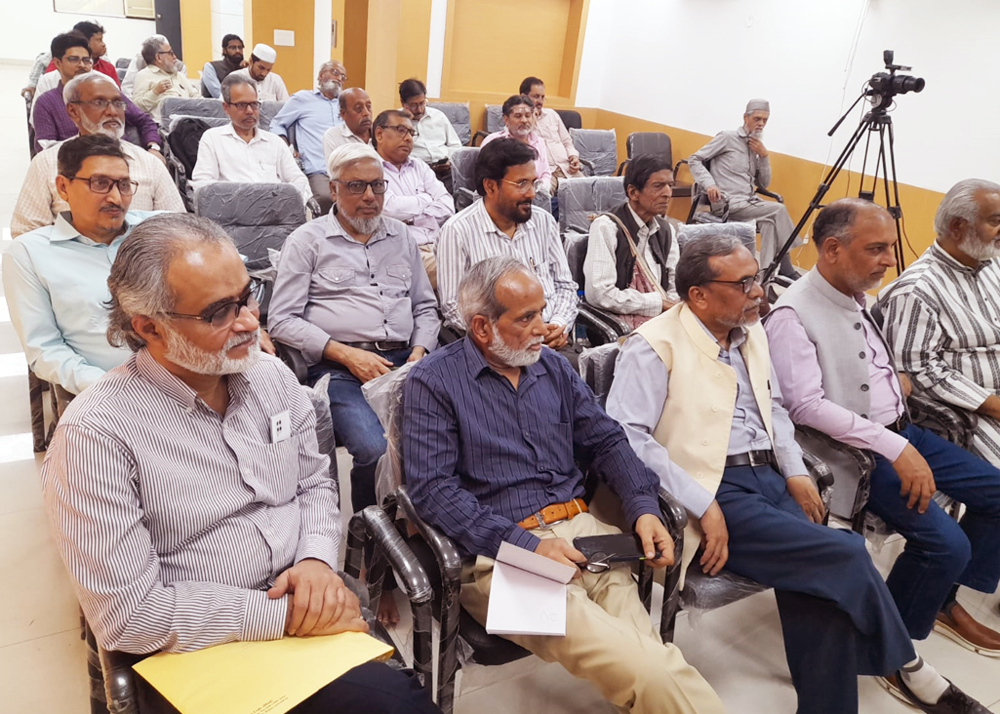
A view of audience
Go Back